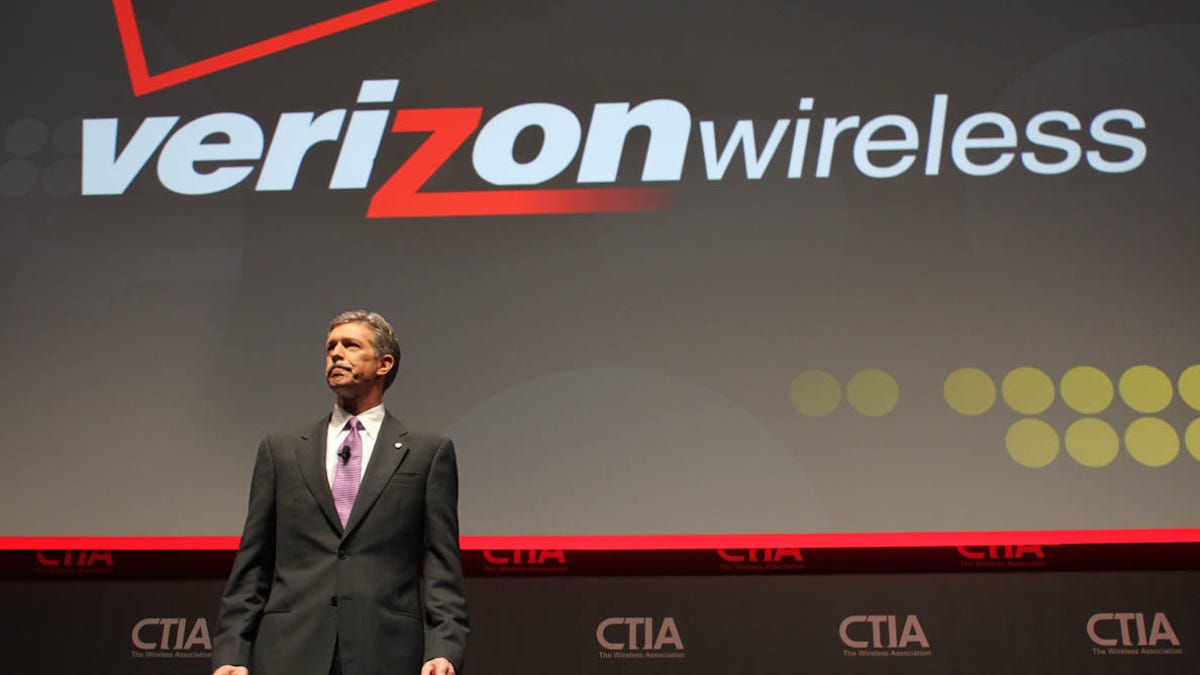Verizon Wireless CEO gives props to BlackBerry, Windows Phone
He also reiterates Verizon Wireless' goal of offering voice over LTE by 2014, which he says will be "an exceptional experience."

Verizon Wireless CEO Dan Mead said on Wednesday that there remains an importance place for both Windows Phone and BlackBerry, the two aspiring mobile operating systems trying to eat into the dominant positions of Apple and Google.
On Windows Phone (which he mistakenly referred to as Windows Mobile 8), Mead said he has been encouraged with what he has seen, noting that the OS has gotten good engagement from the handset manufacturers.
Likewise, there's a vital role for BlackBerry, he said during an investor conference today.
Both Windows Phone and BlackBerry are attempting to stage their respective comebacks, and count Verizon Wireless -- the largest wireless provider by subscriber base -- as a critical partner. Windows Phone has had a rocky start over the last year or so, while BlackBerry has just launched its first phone, the Z10, which runs on its next-generation operating system.
"There's an important opportunity in our industry for them," Mead said about Windows Phone. Likewise, there's an important place for BlackBerry, with Mead noting that there remains a lot of BlackBerry users on the network.
While the Z10 is out in the market, Mead specifically noted demand for the Q10, which sports the traditional full BlackBerry keyboard. He didn't say when the Q10 would launch, although it is expected at the carrier.
"We're hopeful it will meet the needs for our customers who have been loyal BlackBerry customers," he said.
Verizon is also expected to go big with another Windows Phone, Nokia's Lumia 928, which is expected to be unveiled at an event in London next week. Verizon representatives have declined to comment on the prospect of carrying that phone.
Mead and others in the industry have a vested interest in ensuring there are multiple operating systems available to customers, ensuring that it isn't as reliant on Apple's iPhone and devices running on Google's Android operating system.
"Three to four operating systems is good for the industry and good for us," he said.
Verizon has been looking to reduce the cost of paying subsidies to handset manufacturers. Like every other big carrier, Verizon has to pay a hefty sum to Apple to carry the iPhone, and has been looking to better manage those costs.
"It's an active area for us," he said.
Mead also reiterated Verizon's target of launching voice over LTE service by 2014. He dismissed concerns that the quality of service, which is designed more like Internet voice calls than normal phone calls, would be inferior.
"We're working to make sure it's an exceptional service," he said, noting that the carrier will be able to add services such as video calling and HD voice on top of VoLTE.
Verizon is in the middle of finishing up its LTE build out now, which should be completed by the end of the year. The carrier has also been building up its VoLTE infrastructure as it wraps up the network deployment, he said.

